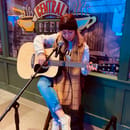Ever since the emergence of COVID-19, many retail workers across the country have been deemed “essential”. Just like healthcare workers, they are now at the frontlines.
Back in the day, around December 2019, retail workers dealt with a lot on any business day: rude customers, shortage of supplies, busy hours, and warehouse days. Now, we are faced with even more hectic-ness while continuing to take it all with a grain of salt. We acknowledge that, now more than ever, compassion and empathy is what drives us to understand the importance of what our job entails.
Working at a drugstore in one of the most popular neighborhoods in Chicago definitely changes the rhythm and pace of a shift, especially during this pandemic. As a student, I‘ve only worked part-time on weekends in order to maintain my role as a full time student. At the end of Winter Quarter, all of my finals were moved to an online format, even for the ones that were originally designed to be in a classroom. With this in mind, I moved up my work availability sooner than planned – I was going to open up my availability regardless due to Spring Break.
As the progression of COVID-19 was increasing in terms of seriousness, nonessential stores, such as clothing stores, began shutting down. Drugstores began moving up their closing times, like mine did. While all my coworkers and I were scared to be more vulnerable to infection due to the hundreds of customers we interact with, we were also trying to get our hours in no matter what. Fortunately (and I guess, as it should be), we were given overtime when the closing store hours were cut. I worked the night-shift, so while others were working from home by then, I was trying to accumulate as many hours as I could since I had the chance. None of my coworkers quit in fear of COVID-19. Instead, we were there almost everyday, regardless of the potential consequences.
The first few weeks of March felt like an apocalypse. Customers were waiting outside the doors to open. Toilet paper was nowhere to be found. The masks. The hand sanitizer. The hand soap. The clorox. The gloves. The hand wipes. Canned soup. Instant noodles. Bread. Gone. “When is your next shipment coming?” “Are there any in the back?” “Do you guys have anything left?” Every single customer asked those questions. Stocking shelves, sanitizing the store, and of course, ringing up the customers’ filled carts every hour of the shift was most draining.

After a while, things died down since people finally got the hint that panic shopping was and is selfish and unnecessary. The toilet paper that remained on the shelves after warehouse day was a sign that things were going to slow down. And they did. The overtime mini season ended, and shift hours were adapted to fit the new normal hours of operation.
Starting the Spring Quarter at Zoom University was also quite curious, since the classes on my schedule were not forcing virtual class, allowing me to work full time, something I thought would only be sporadic or temporary.
Today, I work full time. Stocking shelves, sanitizing the stores, ringing up customers and their toilet paper. We are supplied with masks, hand sanitizers, and gloves, personal and store-use. We now have glass shields to further prevent the spread. And, of course, the six-foot social distance stickers have been placed throughout the checkout lines to promote safety. While all precautions are being taken, the act of just staying in there for hours with different peoples coming in and out is already a big risk itself.

I find myself jumping the scales weighing whether I should stay at home like everybody else, limiting my work hours to weekends only, or to just go to work because there’s nothing else to do. In all honesty and transparency, I feel bad that I’m actually putting myself out there working full time. My mom is diabetic. My dad is a senior citizen. I feel bad that I could possibly be bringing home exposure to my family. My parents are still working, too. They do not have the privilege to be working from home because you cannot possibly do machinery work needed in warehouses and factories at home. I could be exposing my parents who already expose themselves to their hundreds of coworkers. I could also be exposing my grandparents whom my dad tends to; he helps them when it comes to running errands, like grocery shopping.
While I drowned myself in these possibilities, my parents were not opposed to me picking up more hours. I found this to be strange. However, we also had to think about whether they were to be let go temporarily. If this were the case, I would then become half of my family’s main source of income. With all this swirling around with “what ifs” and “ but thens,” I am grateful to still have a job. I am fortunate enough to provide for myself while household heads are suddenly stripped of theirs. Even though work gets boring since customers are in quarantine, I know that “trabajo es trabajo.” Work is work.
I’m also thankful for the customers who thank us for coming to work and doing our job. I’m keeping count, and so far it’s only been five people who have said that to me. That says a lot. The first few times I was taken aback. I’m so used to customers even ignoring my “how are you?” While the lack of thank yous do not hurt our feelings, we appreciate them as they serve as a reminder that our work doesn’t get unnoticed. As the meme says, it makes us feel “ahsential.”


